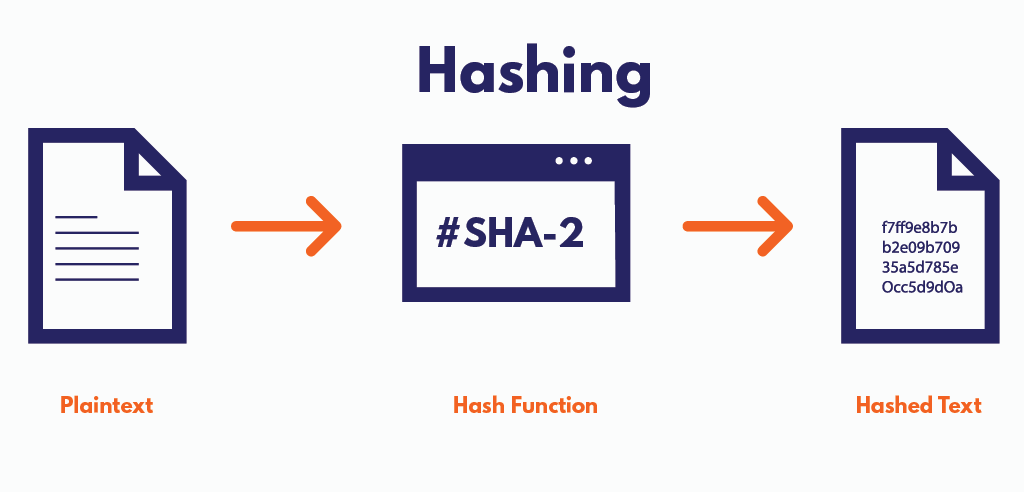
Blockchain technology has transformed numerous industries by providing a decentralized and secure transaction recording system. At the heart of this security lies the cryptographic hash—a fundamental element that many understand conceptually but few grasp in detail. So how does a hash help secure blockchain technology? Let’s explore the critical role of hashing, how it actually works, and why it’s the backbone of blockchain’s renowned security.
When you send a transaction across a blockchain network, your data passes through a digital fingerprinting process that’s virtually impossible to reverse-engineer. This mathematical transformation converts your information into a unique string that helps verify authenticity without exposing the original content—creating the perfect balance between transparency and privacy that makes blockchain so revolutionary.
| Key Aspect | Security Function |
|---|---|
| Ensuring Data Integrity | Each block contains a hash of the previous block, creating an interlinked structure that prevents unauthorized modifications. |
| Preventing Tampering and Fraud | Any change in a transaction alters subsequent hashes, requiring immense computational power to manipulate, making fraud nearly impossible. |
| Enhancing Security | Cryptographic hash functions like SHA-256 and Keccak-256 ensure data is irreversible, protecting transaction confidentiality. |
| Enabling Efficient Verification | Hashing allows nodes to verify transactions using Merkle roots instead of storing full transaction histories, improving efficiency. |
What is a Hash in Blockchain Technology?
When I look at a hash in blockchain technology, I see it as a mathematical function that converts an input (data) into a fixed-length alphanumeric string. This output, known as the hash value, is unique to each specific input. Even the slightest change in the input data results in a completely different hash, a property known as the avalanche effect.

In blockchain, hash functions in blockchain technology play a critical role in maintaining the integrity and security of the distributed ledger. The blockchain technology hash ensures that once a transaction is recorded, it cannot be altered without invalidating the entire chain. This immutability is crucial for trust and transparency in blockchain networks.
How Does a Hash Help Secure Blockchain Technology?
The security of blockchain technology largely depends on cryptographic hashing. Here are some key ways how does a hash help secure blockchain technology?
1. Ensuring Data Integrity
Hashing helps me maintain the integrity of blockchain transactions. Each block in a blockchain contains a unique hash in blockchain technology of the previous block, forming a continuous and interlinked structure. This chaining mechanism makes it impossible to modify past records without altering all subsequent blocks, which would require an immense amount of computational power.
2. Preventing Tampering and Fraud
A hash function in blockchain technology provides protection against fraud and data manipulation. Since each transaction’s hash is stored in the block header, any attempt to change a past transaction would require recalculating hashes for all subsequent blocks. The decentralized nature of blockchain further ensures that multiple nodes must verify these calculations, making tampering practically infeasible.
3. Enhancing Security Through Cryptographic Algorithms

Popular cryptographic blockchain technology hash functions used in blockchain include SHA-256 (used in Bitcoin) and Keccak-256 (used in Ethereum). These functions are designed to be irreversible, meaning that once data is hashed, it is nearly impossible to retrieve the original input. This property helps me protect sensitive information, ensuring the confidentiality of transactions.
4. Enabling Efficient Verification
Blockchain relies on hashing in blockchain technology for quick and efficient transaction verification. Hash functions in blockchain technology allow nodes to validate the authenticity of transactions without needing to store excessive amounts of data. Instead of storing the entire transaction history, nodes can verify transactions by checking the Merkle root, a hash of all transaction hashes in a block.
Industrial Expert Insights
Prominent blockchain experts emphasize the critical role of hash functions in blockchain technology in maintaining security. According to Andreas M. Antonopoulos, a leading blockchain and cryptocurrency advocate, “
“Hash functions are the glue that holds blockchain security together. They create an immutable chain of records, ensuring transparency and trust.”
His statement highlights the fact that without hashing, blockchain’s ability to maintain an incorruptible ledger would be compromised.

Similarly, Nick Szabo, a computer scientist known for his contributions to cryptography, explains,
“Cryptographic hash functions are foundational to blockchain security. They prevent unauthorized alterations and reinforce the decentralized nature of blockchain.”
These expert insights reaffirm the importance of hash in blockchain technology in securing blockchain networks.
Applications of Hashing in Blockchain
Beyond transaction security, hash in blockchain technology has several applications in blockchain:
| Application | Implementation & Benefits |
|---|---|
| Mining and Proof-of-Work (PoW) | In PoW-based blockchains like Bitcoin, miners must solve complex mathematical problems using hash functions to add new blocks to the chain. This process requires significant computational effort, making it difficult for malicious actors to alter blockchain data. |
| Digital Signatures and Identity Protection | Hashes are used to create digital signatures, ensuring that transactions are authorized by legitimate parties. By hashing private keys, hash functions provide an additional layer of security against identity theft and unauthorized access. |
| Smart Contracts and Data Verification | Smart contracts utilize hash functions to verify data integrity and automate processes securely. By hashing input data, smart contracts can execute predefined conditions without exposing sensitive information. |
Common Misconceptions About Blockchain Hashing
Despite its importance, there are some common misconceptions about blockchain technology hash:
- Hashing is the same as encryption: Unlike encryption, which is reversible, hashing is a one-way process. Once data is hashed, it cannot be decrypted back to its original form.
- Hashing guarantees absolute security: While hash functions significantly enhance blockchain security, they are not immune to vulnerabilities. For instance, quantum computing could pose a threat to existing cryptographic hash functions in blockchain technology, necessitating advancements in post-quantum cryptography.
- All hash functions are equally secure: Some hash functions, such as MD5 and SHA-1, are considered weak due to vulnerabilities. Blockchain networks use more robust algorithms like SHA-256 and Keccak-256 to ensure higher security levels.
Conclusion
So, how does a hash help secure blockchain technology? Hash functions are the backbone of blockchain security, ensuring data integrity, preventing tampering, and enabling efficient transaction verification. By leveraging strong cryptographic algorithms, blockchain networks can maintain trustless and decentralized systems resistant to fraud and manipulation.
If you are looking for a comprehensive understanding of how does a hash help secure blockchain technology quizlet, or even how does hash help secure blockchain technology, mastering cryptographic hashing is a fundamental step in navigating the world of blockchain with confidence.
Frequently Asked Questions (FAQs)
1. What is a hash in blockchain technology?
A hash in blockchain technology is a cryptographic function that converts input data into a fixed-length hash value, ensuring security and immutability.
2. How does a hash help secure blockchain technology quizlet?
If you are looking for an explanation on how does a hash help secure blockchain technology quizlet, hashing ensures that blockchain records cannot be altered without invalidating the entire chain, enhancing security.
3. How does hash help secure blockchain technology?
How does hash help secure blockchain technology? By ensuring data integrity, preventing tampering, and enabling efficient verification of transactions.
4. What is a hash function in blockchain technology?
A hash function in blockchain technology is a mathematical algorithm that transforms input data into a fixed-length string, used for data integrity and security.
5. How does a hash help secure blockchain technology?
How does a hash help secure blockchain technology? It protects transactions by making past modifications computationally impractical and ensures authenticity through cryptographic algorithms.

















